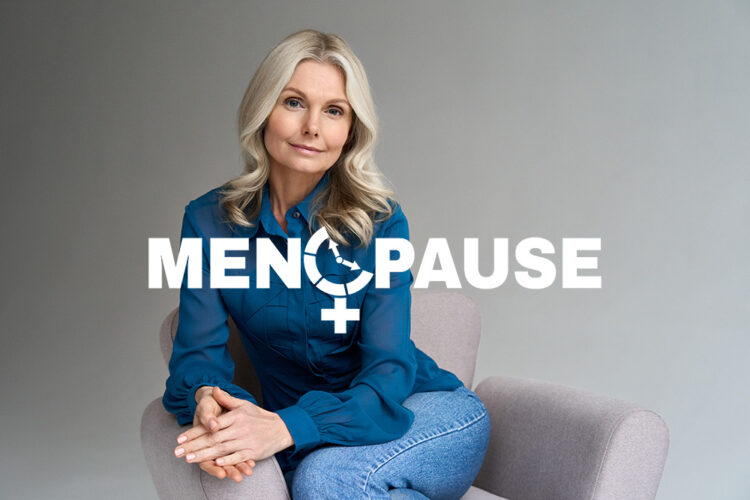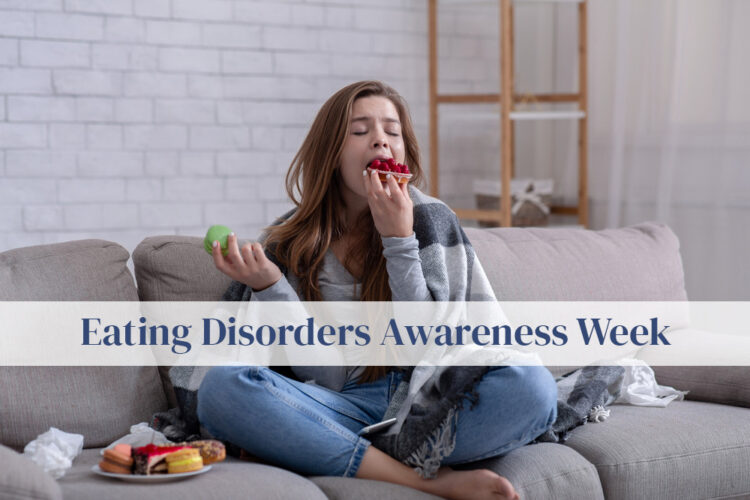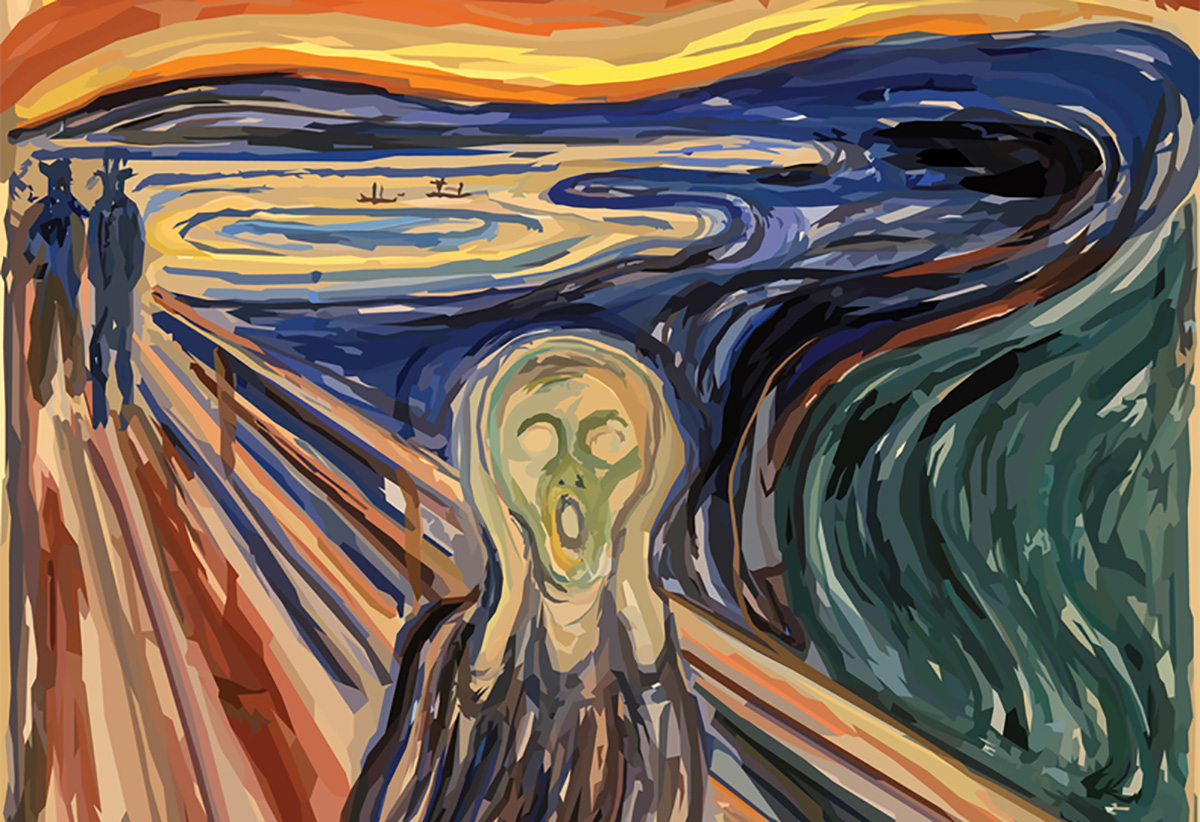
Are anxiety and depression the same?
The terms anxiety and depression are frequently used when talking about mental health. Since these are two of the most commonly occurring psychological conditions in the world, then that is to be expected. But what are they? And are they the same?
Anxiety and depression are mood disorders, and whilst they share a lot of the same symptoms, they are two distinct and separate conditions that can occur together or independently. About 60% of people will suffer both simultaneously, with one illness aggravating the other.
One in four people in the UK experiences a mental health problem each year. This means that if you yourself do not struggle, then there is a good chance you may know somebody who is affected by these debilitating conditions.
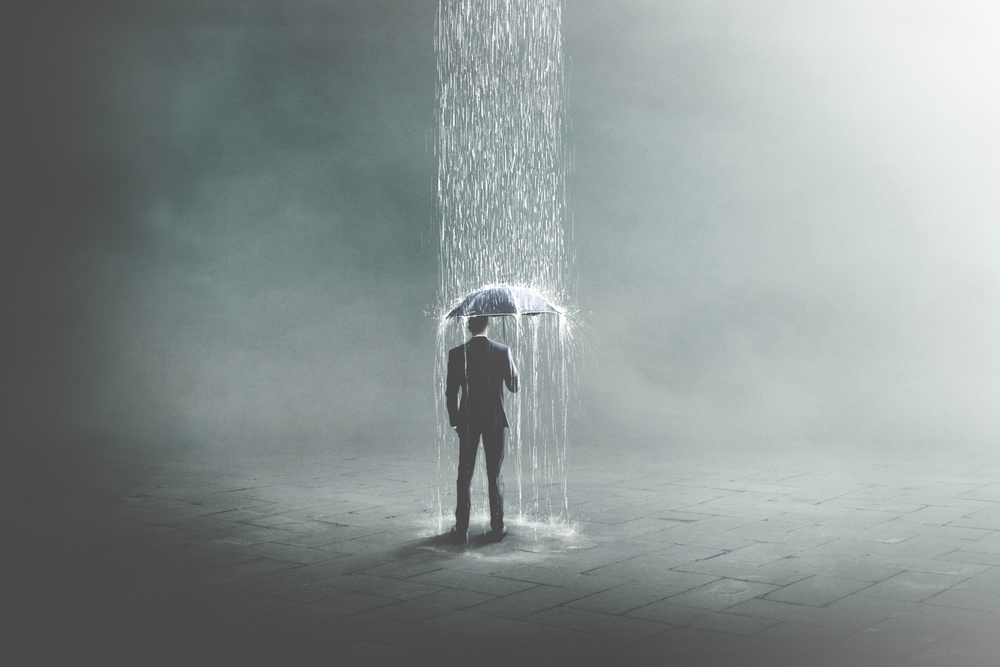
What is anxiety?
It is estimated that 284 million people worldwide suffer with an anxiety disorder, that is approximately 4% of the global population.
It is normal to feel anxious at times, it is the body’s natural reaction to imminent danger and stressful situations. Maybe when you have a test coming up or you are starting a new job, you feel a little nauseous, or get a bit sweaty and shaky. This is the body’s autonomic nervous system reacting to stress and producing your fight-or-flight response, which is specifically designed to help you defend yourself or run away from danger.
But imagine feeling like that constantly? Having an anxiety disorder is described as being persistently worried, stressed, and fearful, to the point that it interferes with daily life.
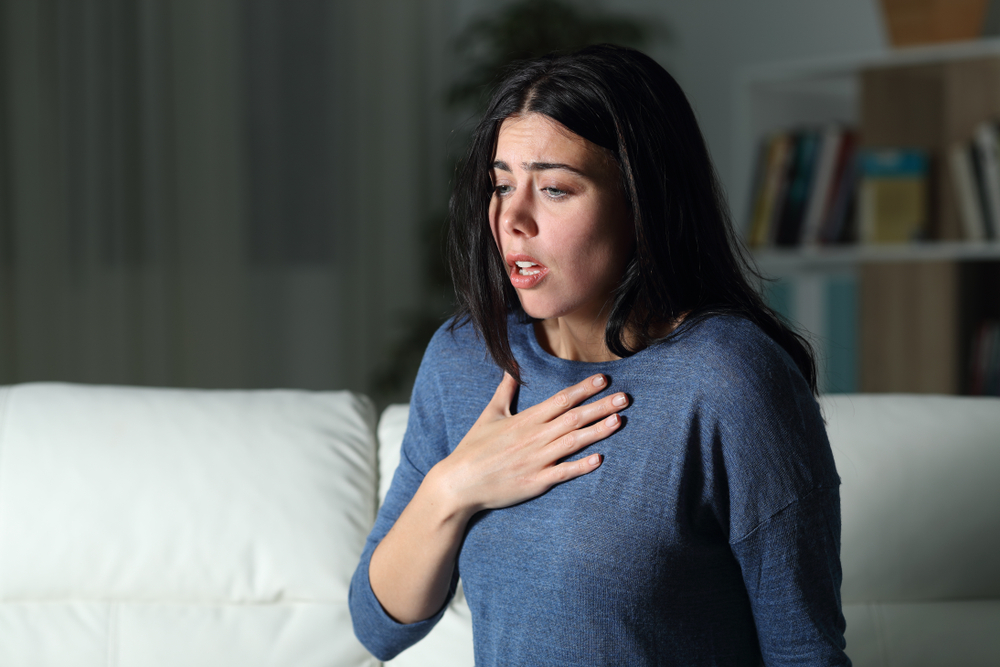
Types and symptoms of anxiety
There are several types of anxiety disorders, including, generalised anxiety, social anxiety, panic disorders, separation anxiety and phobias.
Common signs and symptoms of anxiety disorders include:
• Repeatedly feeling on “edge”, a sense of impending doom, or dread.
• Restlessness, irritability, and difficulty concentrating.
• Panic attacks, tightness in the chest, shortness of breath, trembling.
• Isolating from others, withdrawing into a shell.
• Excessively sweating, dry mouth, headaches, dizziness, chest pains or palpitations.
• Obsessive thoughts, introspection, or rumination.
• Tiredness and fatigue. Trouble getting to and staying asleep, insomnia.
• Stomach-ache, nausea, changes in appetite.
If you have any of these, for more days than not, over the period of several months; or persistent worry is causing you distress, then you should see a doctor or your GP.
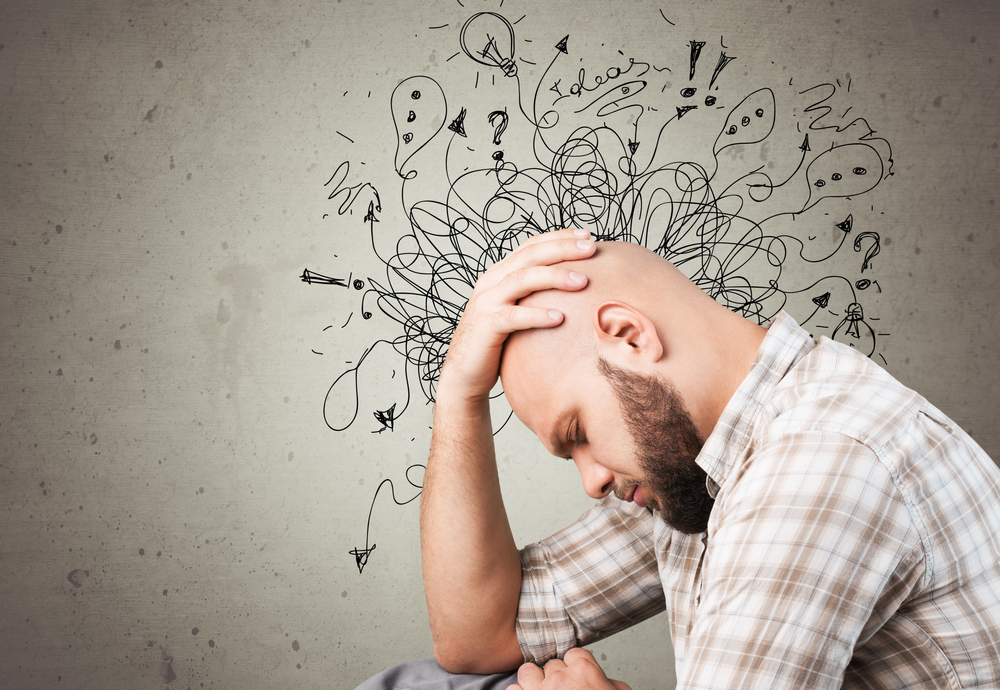
What is depression?
Affecting approximately one in six people at some point in their lifetime, which is an estimated 300 million people globally, depression is one of the world’s leading causes of disability.
Everyone has periods in their life when things feel difficult, or even impossible. When they feel down and blue, if these feelings continue for an extended period, it could be a sign of depression.
Described by the American Psychiatric Association as “a common and serious medical illness that negatively affects how you feel, the way you think and how you act.” Depression is characterised by a constant feeling of sadness and loss of interest, which destroys the ability to act and live normally and engage in everyday activities.
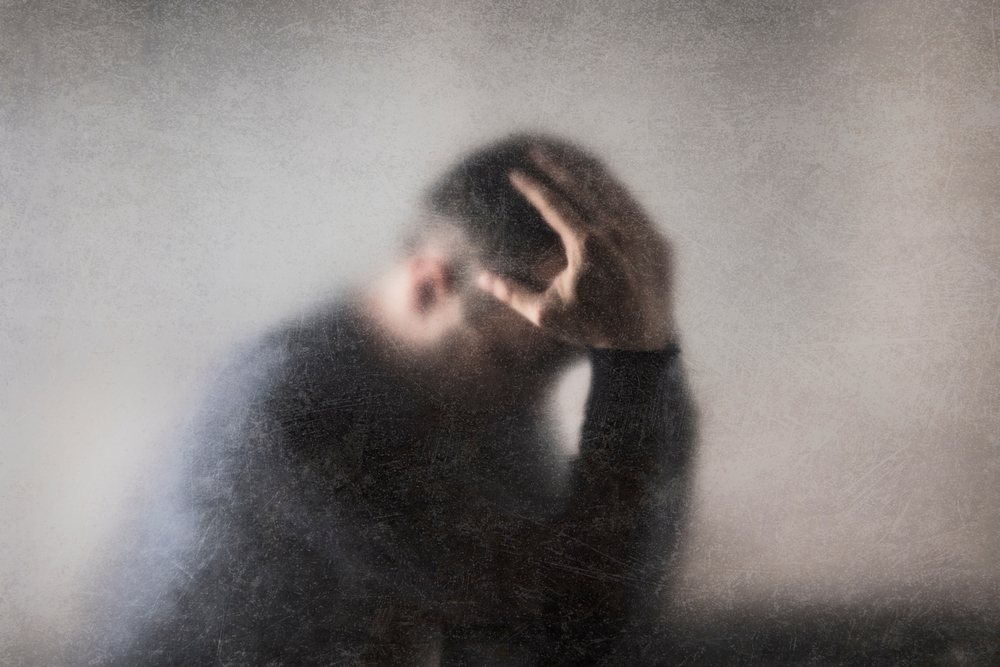
Types and symptoms of depression
Depression comes in many guises and types – major depressive, psychotic, bipolar, post-natal and post-partum, persistent depressive, seasonal affective disorder, and atypical depression, to name a few.
Symptoms range from relatively minor to severe. It can hit indiscriminately and has a negative influence in all areas of a sufferer’s life – work, relationships, and physical wellbeing.
Common signs and symptoms to look out for:
• Extreme or extended feeling of sadness, feeling tearful.
• Decline in interest with life, no motivation to engage in hobbies.
• Feelings of hopelessness and helplessness, emptiness, or guilt.
• Loss or gain in weight, changes in appetite or eating habits.
• Changes in sleeping. Too much or too little, and insomnia.
• Withdrawing from family, friends, loved ones and social situations.
• Feeling more than usually irritable or angry.
• Thoughts of harming oneself or suicide.
Most medical professionals agree that if you experience one or more of these for longer than two weeks then it is worth getting it checked out.
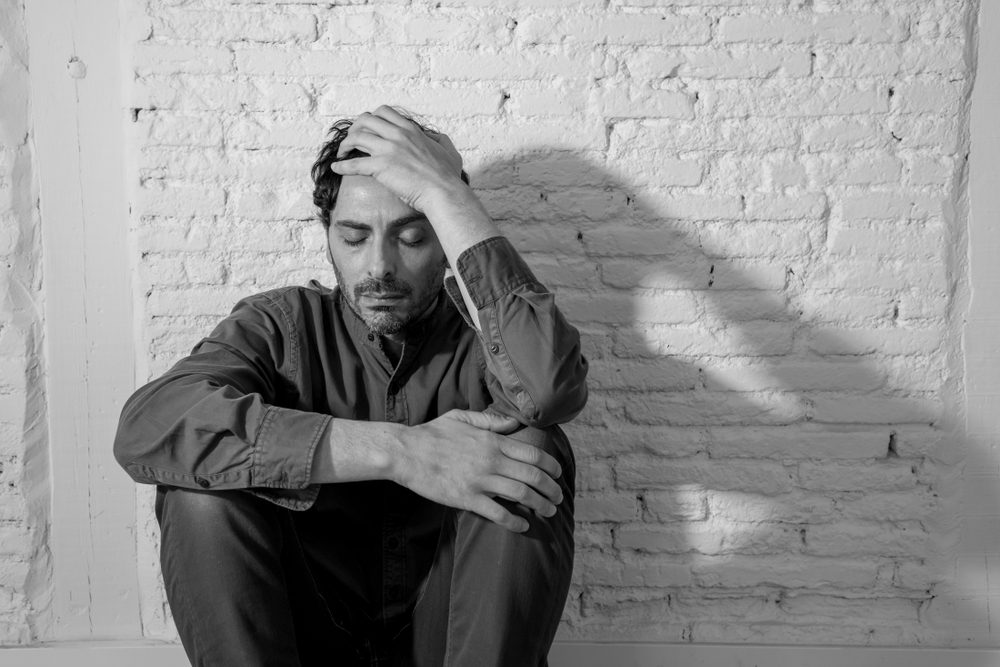
What causes anxiety and depression?
Anxiety and depression can affect anyone, irrespective of age, race, or social class, and can materialise at any time. There is no single factor that causes these conditions, but a combination of several. Personality, life experiences, and physical health can all play a part in someone developing a mental health problem. Some people are genetically more predisposed to these types of illnesses; whilst others can develop either, or both, because of a single violent or shocking incident.
Stress and trauma are triggers for both anxiety and depressive disorders. Whether it happens to the individual themselves, or someone close to them, distressing experiences can have a major effect on physical and mental well-being.
Events such as:
• death or loss of a loved one
• divorce and separation
• pregnancy, childbirth and becoming a parent
• workplace stress, or changes in job role
• violence, sexual, physical, or verbal abuse and assault
• domestic abuse and coercive or controlling behaviour
• childhood neglect, trauma, or abuse
• serious, life-altering, and terminal illness or accident
• natural disasters, war zones and conflict
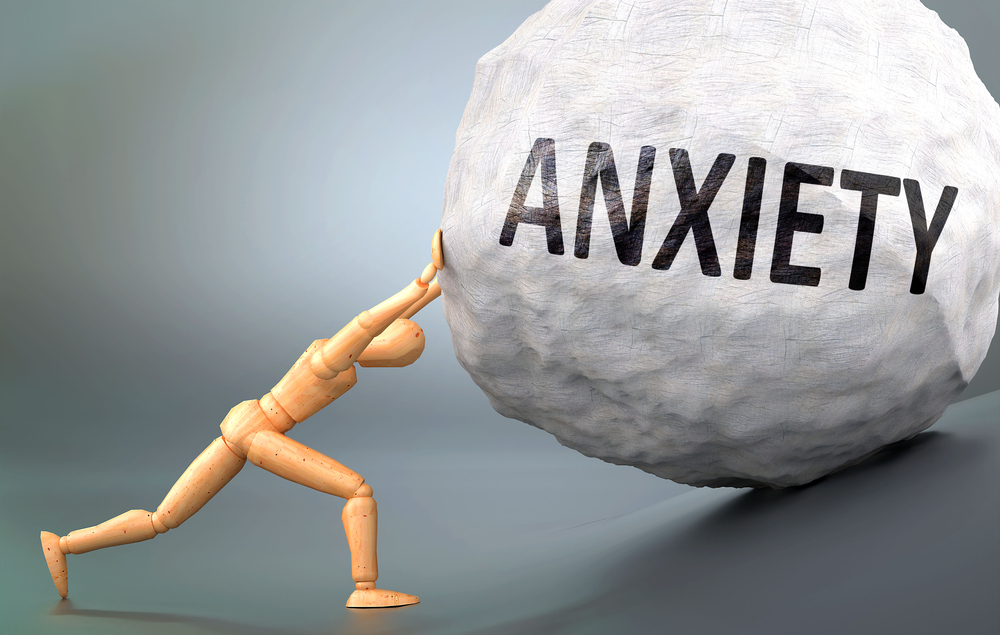
Treatment for anxiety and depression
The World Health Organization has declared that up to 50% of people in high-income, or first-world, countries do not get the treatment they need for mental health disorders. This figure rises to over 75% in low-income nations.
Treatment often involves therapy and medication, or a combination of the two. Talk therapies such as cognitive behavioural, which is popular as it teaches an individual to think and behave differently so they are more able to manage, or stop, triggering episodes.
Antidepressants are the favoured medication for depression, these will help balance the chemicals in the brain, impacting on mood. They can also be used as a chemical treatment for anxiety, along with anti-anxiety drugs and beta-blockers.
A more recent breakthrough in treatment for these and other mental health conditions (such as addiction) is TMS or transcranial magnetic stimulation. TMS is a non-invasive form of brain stimulation therapy that has proved highly effective in the treatment of neurological conditions.

Rehab in Spain
Here at the luxury residential rehab centre in Ibiza we have a team of highly qualified staff that are experienced in a range of therapies, to assist with the treatment of anxiety and depression, as well as other mental health conditions such as alcoholism, addiction, PTSD, and codependency.
We are also able to offer transcranial magnetic stimulation (TMS) on-site as a part of our treatment programs.
For more information and details on admissions contact [email protected]
Share this information, choose your platform!
We are proud of our team at Ibiza Calm
Meet The Team at Ibiza Calm We would like to introduce our team of experts here at Ibiza Calm, hand picked for their knowledge and expertise. They are all play a vital role in making your stay here at Ibiza …
Menopause, mental health, substance abuse, and addiction
October is World Menopause Month, with the theme this year being cognition and mood. Menopause is a natural stage in a woman’s life, which brings with it a whole host of physical and emotional side effects; but is rarely openly …
Tips for staying safe and sober during the holidays
The holiday season is upon us, and what is a fun time for some – with parties and get-togethers – for others it can be difficult, fraught with emotion and expectation; and for those in recovery, it can be a …
Eating Disorders Awareness Week
Eating Disorders Awareness Week (EDAW), takes place this year from Monday, February 27 – Sunday, March 5. This is an annual campaign aimed at improving the public knowledge around the realities of eating disorders, and to give hope and support …







